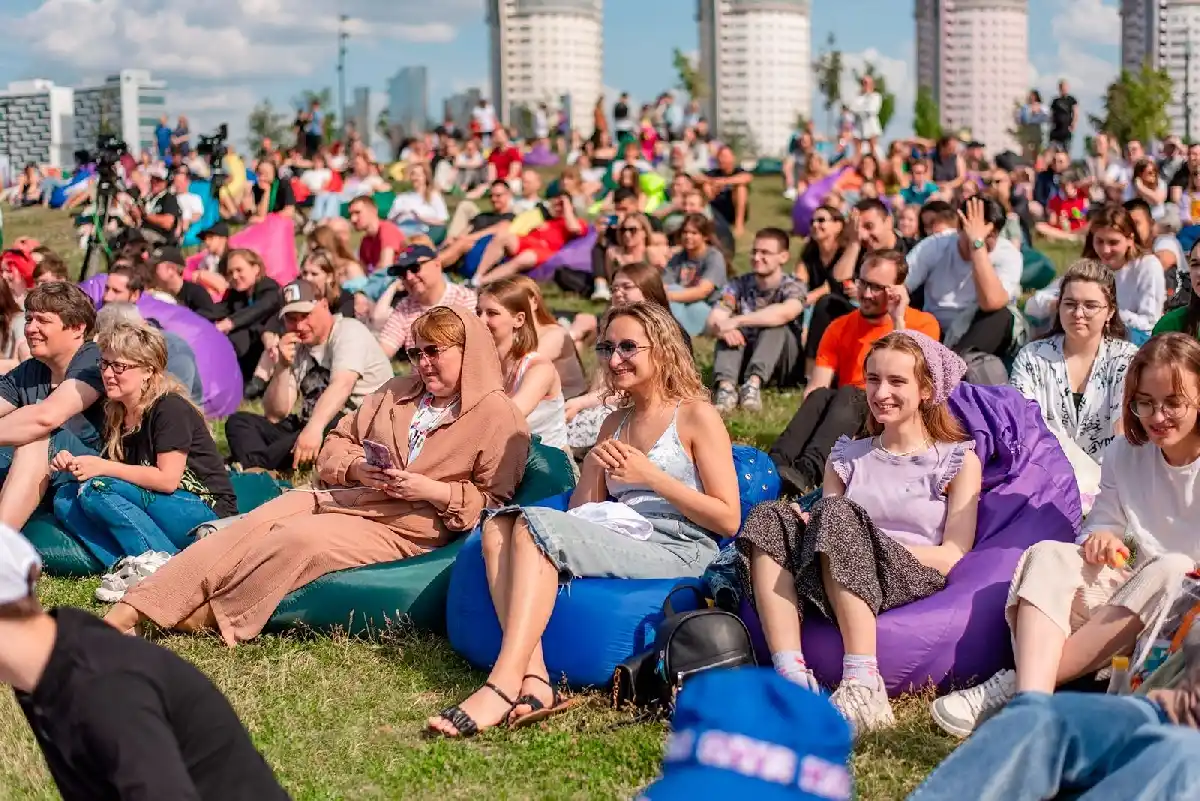At a meeting of the National Anti-Terrorism Committee, FSB Director Alexander Bortnikov stated that 65% of those detained for terrorist-related crimes are young people.
Sociologists confirm that youth remains the least loyal demographic group toward the Russian authorities: young people are more likely to have a positive attitude toward the West and to reject the “special military operation.” In Moscow’s universities, 50–60% of students say they would like to leave the country. Yet, as insiders admit, since February 2022 no effective tools have been found to “correct” youth policy. “This is the administration’s single biggest failure,” says a Moscow-based political analyst. “The problem isn’t that Sergei Kiriyenko’s team is ineffective. The problem is that the paradigms being pushed by Kremlin officials simply don’t appeal to young people. And there’s nothing they can do about it.”
Early Indoctrination Efforts
With children, however, the situation is different. From kindergarten onward, they are now told that the state is absolute, and that the state is the Motherland; therefore, to love the Motherland is to love and place absolute trust in the state as a value in itself.
Sergei Rybalkenko, head of a Public Chamber commission, recently proposed that the design of school notebooks and pencil cases be approved by the Ministry of Education — and, according to sources, this was not an offhand “noise-making” remark, but a deliberate element of future cultural policy. The authorities aim to instill the “right meanings” as early as ages 5–8.
“This is a direct violation of the Constitution. But few people notice such trifles in the marathon race to build Russia’s greatness,” says the Moscow political analyst.
In November 2024, First Deputy Chief of Staff Sergei Kiriyenko lamented that none of the thirty best-selling toys in Russia were domestically made. Now, sources say, the task is to import-substitute not only toys but also children’s worldviews.
Rising Tensions with Teenagers and Young Adults
With teenagers and young adults (ages 14–25), the task for officials is far more difficult. The conflict that arose after the start of the war has not only failed to disappear but has grown sharper. After the destruction of the non-systemic opposition and the spring wave of pacifist protests in 2022, open expressions of dissent have almost vanished — but public resentment remains.
“Young people are confronted with the suppression of individuality, vibrancy, and modernity. The older generation imposes on them a cult of war, of the collective, of silence, and of gloom. The scope for freedom of maneuver is shrinking, the range of life choices is narrowing, and cynicism and doublethink are on the rise. Young people understand that they are being limited in their own growth, deprived of their future, and forced to accept artificial narratives instead,” says a sociologist from a leading Moscow research center.
The blocking of YouTube, restrictions on the Internet and messaging platforms, the threat of punishment, and the shrinking of public space only deepen negative sentiment among young people.
Over the next two years, serious changes from the authorities are unlikely, but the Kremlin intends to “combat internal discontent.”
The plan is to continue offering young people “development trajectories” and “meaningful values” — mostly artificial and imposed. Yet here lies a contradiction: most young Russians see themselves as patriots, but their patriotism tends toward a positive agenda and development, rather than a cult of sacrifice and readiness to die for the state.


















